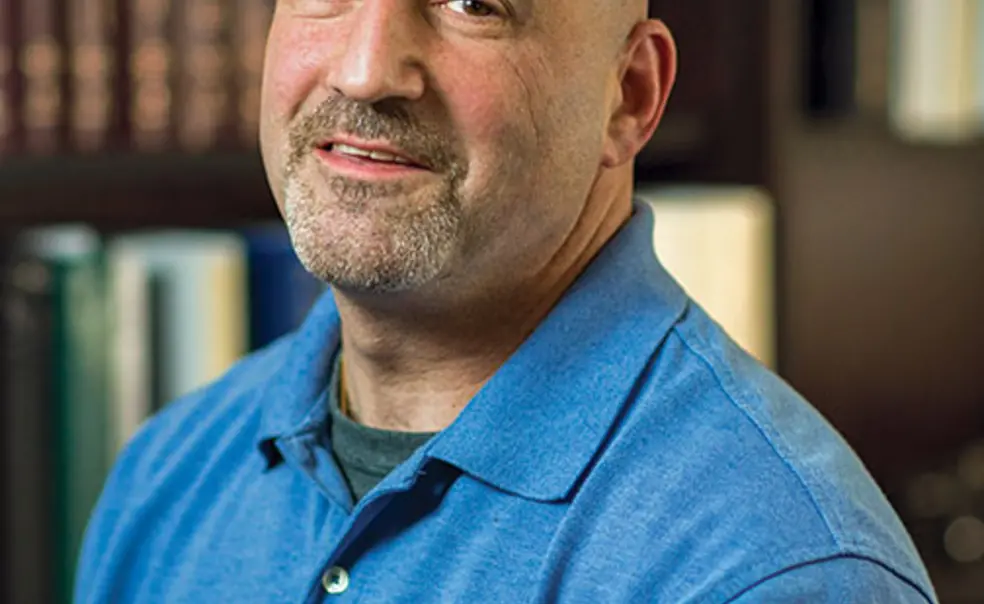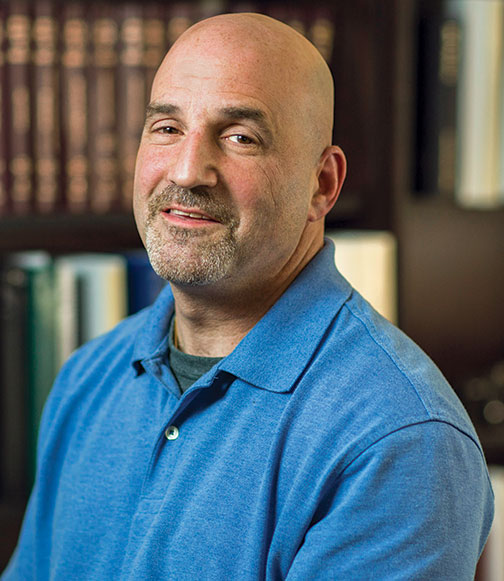Q&A: Jonathan Rapping *92 on Defending the Poor
Jonathan Rapping *92 worked for more than a decade in public defenders’ offices and saw that many court-appointed lawyers were ill-equipped to represent their clients well. In 2007, he and his wife, Ilham Askia, founded Gideon’s Promise, a nonprofit organization in Atlanta that offers training and mentoring for public defenders in 15 states. The group intervenes at the trial stage rather than after conviction, when most defendants’ challenges take place. The name Gideon’s Promise comes from Gideon v. Wainwright, the 1963 Supreme Court case that required state courts to provide counsel to defendants who are unable to afford an attorney.
Stephen Bright, president of the Southern Center for Human Rights, told The Atlanta Journal-Constitution that Rapping “is making the Constitution of the United States a reality for the first time in courtrooms all over the Southeast. He is teaching public defenders to be client-oriented — to recognize the dignity of their clients, treat them with respect, and give them the same representation they would receive if they could afford the best lawyer in town.”
Last month, Rapping was chosen as one of 21 recipients of a 2014 MacArthur Fellowship, which comes with a no-strings-attached stipend of $625,000. Rapping isn’t sure what he will do with his so-called “genius grant,” but, he says, “it’s a nice cushion” for Gideon’s Promise. Rapping earned an MPA from the Woodrow Wilson School and a law degree from George Washington University. His work has been featured in the award-winning documentary film Gideon’s Army. He spoke with PAW soon after winning the prize.
Why did you start Gideon’s Promise?
The justice system had come to accept embarrassingly low standards of justice for poor people. Lawyers were losing sight of what their obligations were to their clients. The idea was to build a community of public defenders who would raise expectations and raise the standard of representation for poor people accused of crimes in systems that had abandoned our most fundamental values.
We started with 16 lawyers in two offices, and we’ve now trained more than 300 public defenders across 15 states. In seven years, we are well on our way to building not only a comprehensive organization, but a movement of defenders committed to changing expectations.
What are your main goals?
In the short run, we are producing lawyers who are going to provide better representation to their clients immediately and introduce a higher standard of practice into systems that have come to accept injustice. In the long run, our goal is to grow these lawyers into tomorrow’s leaders, so they are running offices and collectively advocating in the statehouses for the resources and policy reforms necessary to make sure we are living up to our constitutional responsibility.
What drives you to do this work?
Criminal justice and indigent defense are this generation’s greatest civil-rights struggle. The greatest injustices facing poor people and people of color are happening in our criminal-justice system. Eighty percent of the people in our system are poor, relying on court-appointed lawyers. They are disproportionately people of color. Communities are torn apart when people are charged and don’t have the defense they need. So hopefully we can inspire the country to focus on this really important civil-rights issue. Our basic ideals as Americans are at stake.
Interview conducted and condensed by Gabriel Debenedetti ’12













No responses yet